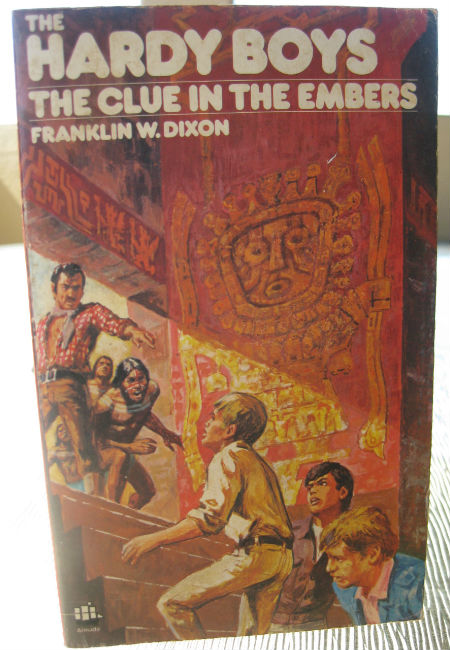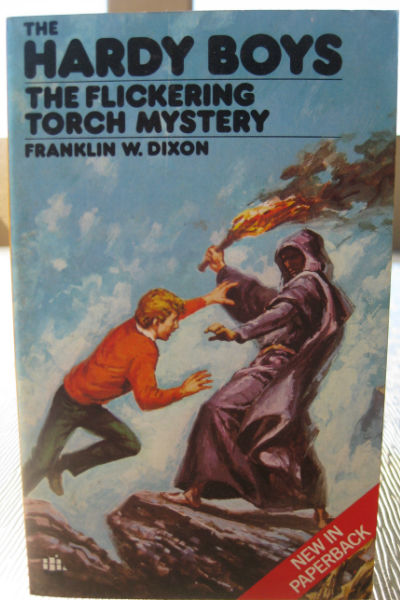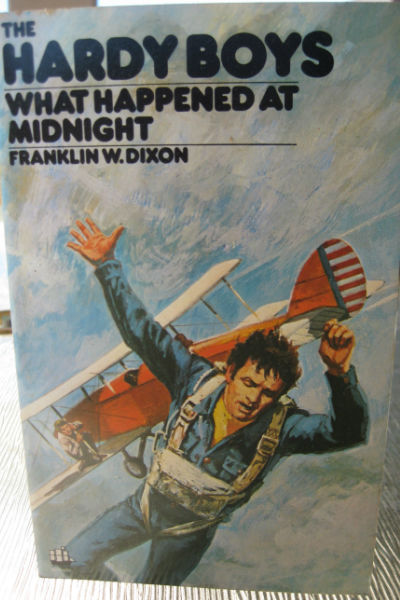How I didn’t end up as a detective in a police force somewhere solving crimes and living out of a mysterious hidden headquarters I will never know.
Given the amount of mystery series aimed at children and teens that I voraciously read in my defining years – clearly not defining enough if my choice of non-crime solving vocation is any indication – which included everything from Agaton Sax to the Alfred Hitchcock and the Three Investigators series, and yes even Nancy Drew and The Dana Girls (my love for reading about the upholding of the law was non-gender specific), I should have solved something like a gazillion crimes by now.
Alas I have not, with the police forces of the world somehow managing to limp on without me.
What I do have however are fond memories of disappearing into these books for hours at a time, lost in their often fantastical worlds of derring-do, marvelling at their ability to confound crooks and come to the rescue of innocent victims, all when they were all barely older than I was at the time.
It was impressive stuff, and I often wondered where my mythical seaside town or quietly acquiescent school was, and why I wasn’t living there or attending it respectively, instead of the quietly middle surrounds of Alstonville, NSW, Australia.
Surely if I had been able to live in Bayport with my father Fenton, my mother Laura and Aunt Gertrude, and attend the high school there, which seemed to have a rather lax attendance policy like Frank and Joe Hardy of The Hardy Boys, my life would have irrevocably different both then and now.
Like many of the characters in the books I read, frank and Joe Hardy led a charmed existence, able to skip out of school at will whenever their unofficial duty called, gifted with extraordinary insight and good luck, and members of a secret organisation called American Teens Against Crime, which gave the cases they worked on.
Granted that organisation didn’t exist in the versions of the books I read, with the books of my era leaving the plucky Hardy Boys to make do with requests for help from their detective or happenstance where they were in the right place at the right time and were able to solve the crime themselves, but the very idea of being asked by your father to help in an official police matter surely must have been every bit as good as the mysterious group that replaced him.
That good fortune was matched by the complete of sibling rivalry between the two.
They got on like a house on fire – the lighter of which they naturally spotted engaged in nefarious activities and had arrested forthwith – with Frank the intellectual powerhouse and Joe more likely to act first and ask questions, or question his judgement later, attributes which stood them in good stead throughout all their adventures.
While I never noticed it when I was reading the books, which were written by a series of ghostwriters starting in 1927 under the collective pseudonym of Franklin W Dixon with Canadian Leslie McFarlane being the first of a number of gun-for-hire authors who wrote for the Stratemayer Syndicate which oversaw publications of the books, the boys weren’t actually that different from each other with other mischievous commentator, Steve Burgess of salon.com, being led to comment that “the boys’ characters basically broke down this way – Frank had dark hair; Joe was blond.”
That minor quibble aside, and the fact that boys manage to travel not just across the USA but around the world with few questions asked and unlimited funds at their disposal, The Hardy Boys did their job well as pure escapist entertainment, diverting first the readers of the Great Depression and then bored teenage boys like myself many years later.
While The Hardy Boys largely stayed the same between 1927 and 1959, they were given an overhaul in the latter year after at least a decade of complaint about the racial stereotypes prevalent in the books.
Like any commercial reaction to a a groundswell of negative public critique, particularly one which earned a considerable amount of money for the publishers, this one perhaps went a little to far excising characters of any other race than Caucasian entirely, leaving Bayport and its scandalously high crime rate in the hands of white criminals only.
The re-positioning of The Hardy Boys franchise also included faster paced storylines, less complicated words (a sad thing for a boy like me who adored long twisty words of multiple syllables; not that I noticed in this case since the changes were made a good 15-20 years before I started reading the books), and a great deal more respect for the law, both from Frank and Joe and the criminals they pursued with such alacrity and success.
The publishers of the books were then accused apparently of gutting the books, and perhaps they did, but all I can remember is loving the thrills, spills and over the top nature of the books which were far more exciting and adventurous than the life I was leading at the time.
Granted they may have been straight off the book production line, along with the Nancy Drew novels, but they were diverting, riveting reading for a boy in country NSW, and they will always therefore retain a treasured place in my heart.
Even if they did fail to launch me on a glorious career as a crime-solving wunderkind.
* And as you’d expect The Hardy Boys, along with stable mate Nancy Drew, also launched a hit TV series, The Hardy Boys Nancy Drew Mysteries which ran from 1977-79 starring Shaun Cassidy and Parker Stevenson as Joe and Frank, and Pamela Sue Martin (1977-1978) and Janet Louise Johnson (1978-79) as Nancy Drew, and which I watched avidly (as much I must admit for the two handsome leads as the mysteries themselves) …


